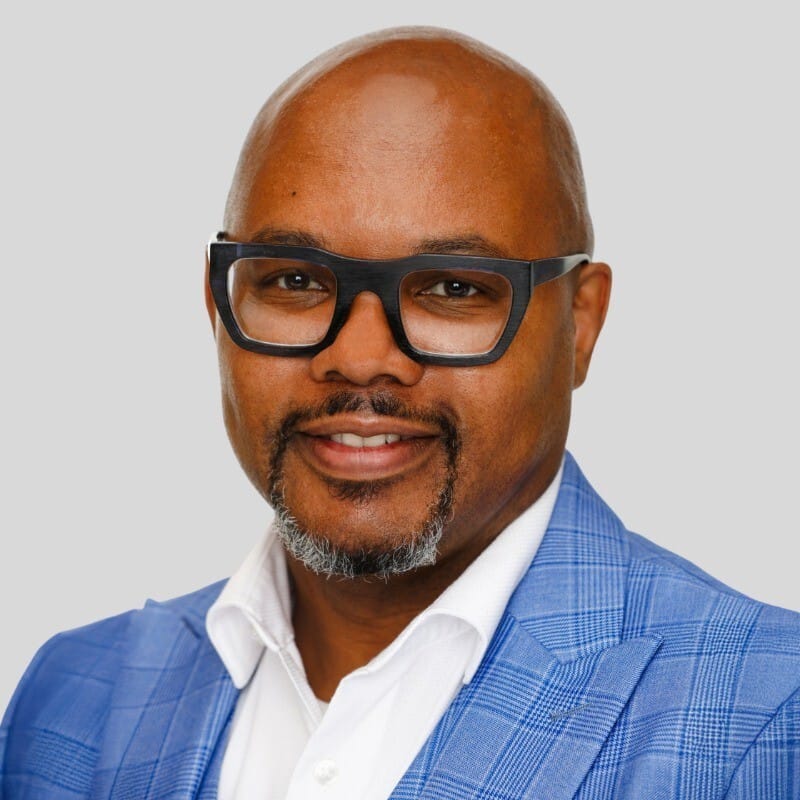
Christopher C. Williams
It’s one thing to survive a storm; it’s another to find direction in the aftermath. In the span of a few years I suffered multiple heart attacks, battled stage III cancer of the appendix, and learned firsthand how the healthcare system too often fails our communities, particularly Black men. These challenges forced me to ask hard questions: What am I here for? If I’m given a second chance, how will I use it?
Before those crises, I defined success by career milestones and the weight I could shoulder. After them, I realized survival alone wasn’t enough; I needed to live with intention. That epiphany led me to start Heart, Body & Soul, a nonprofit committed to supporting the physical, mental, and spiritual well being of Black men. Our mission is simple: create a safe space where we can talk openly about health, access preventive care, and build resilience together. We offer health screenings, wellness workshops, community events and, most important, a network of brothers who uplift one another.
Volunteerism: The Heartbeat of Our Work - While my health journey sparked the idea, volunteers brought it to life. Research confirms what I’ve felt intuitively: volunteers are the lifeblood of community health. According to AmeriCorps, more than 75.7 million Americans, around 28.3 percent of the population, formally volunteered in 2023, collectively giving 4.99 billion hours of service worth roughly $167.2 billion. This surge shows that the spirit of service is on the rise, and Heart, Body & Soul has been blessed to ride that wave.
Why does volunteering matter beyond the immediate help it provides? Studies show that giving time is good for you, too. Older adults who volunteer 200 hours a year reduce their risk of high blood pressure by 40 percent. Volunteering reduces stress and depression and boosts satisfaction; volunteers report better physical health and lower rates of anxiety. A Mayo Clinic Health System summary notes that volunteering releases dopamine, providing a sense of meaning and appreciation that lowers stress and reduces risks for heart disease and stroke.
The benefits aren’t limited to physical health. A London School of Economics study found that compared with people who never volunteer, the odds of feeling “very happy” increase 7 percent for those who volunteer monthly, 12 percent for those who volunteer every two to four weeks, and 16 percent for weekly volunteers, an increase comparable to the happiness boost of earning $75,000–$100,000 versus $20,000. Research from Carnegie Mellon University shows that volunteers who give at least 200 hours annually are 40 percent less likely to develop hypertension, and a Philanthropy News Digest report notes that older volunteers are more likely to get flu shots, mammograms, Pap smears, and cholesterol tests, and spend 38 percent fewer nights in the hospital. These benefits explain why the UnitedHealth Group’s Doing Good is Good for You study found that 75 percent of volunteers feel physically healthier, 93 percent report improved mood, 79 percent report lower stress levels, and 88 percent report higher self esteem.
At Heart, Body & Soul, our volunteers embody these statistics. Every time someone helps with blood pressure checks, leads a meditation session, or mentors a young man, they aren’t just giving; they’re part of a reciprocal process that strengthens their own well being.
Purpose: The Soul of a Fulfilling Life
Volunteerism matters because it fosters purpose, and living with purpose is more than motivational speak. A 2019 study in JAMA Network Open followed nearly 7,000 adults over age 50 and found that those who ranked highest on a “life purpose” scale were less likely to die during a four-year follow-up and specifically less likely to die from heart or circulatory conditions. A 2022 study of more than 13,000 Americans found that people with the highest sense of purpose had a 15.2 percent mortality risk over eight years, compared with 36.5 percent among those with the lowest sense of purpose. Researchers argue that purpose encourages health protective behaviors, better diet, more sleep, regular preventive care and reduces stress and inflammation. In other words, having something to live for literally keeps you alive.
Volunteering isn’t the only path to purpose, but it’s a powerful one. When you help someone else, you see that you matter. Your skills and time are valuable. You belong to something larger than yourself. For Black men like me, who may be underserved or marginalized, that validation is transformative.
Our Collective Journey: Living With Intention
I often think about the men who come to our events because they’re nervous about getting a prostate exam or because they’ve lost a friend to cardiovascular disease. I see how their shoulders relax when they’re greeted by volunteers who look like them and understand their experience. I remember our first installment of The Black Man’s Health Festival®, where retired nurses, teachers and city employees sat next to college students, fathers, grandfathers and sons, all checking in on each other. That moment crystallized our mission: Heart, Body & Soul is not just about surviving, it’s about thriving together.
Living with purpose doesn’t require a monumental mission. It starts with small, intentional acts: showing up for a neighbor, sharing your story, or volunteering for a few hours a month. Research shows that even modest amounts of service can boost happiness and health. And when you do it for reasons beyond yourself, when you volunteer out of compassion rather than obligation, the benefits are even greater.
My journey taught me that life’s challenges can become catalysts for change. Heart, Body & Soul exists because pain pushed me to seek purpose. Every volunteer who joins us amplifies that purpose, transforming individual struggles into collective strength. If you’re searching for meaning, consider giving your time. You might find that the path to a fulfilled, healthy life begins not with asking “What do I want?” but with asking “How can I serve?”